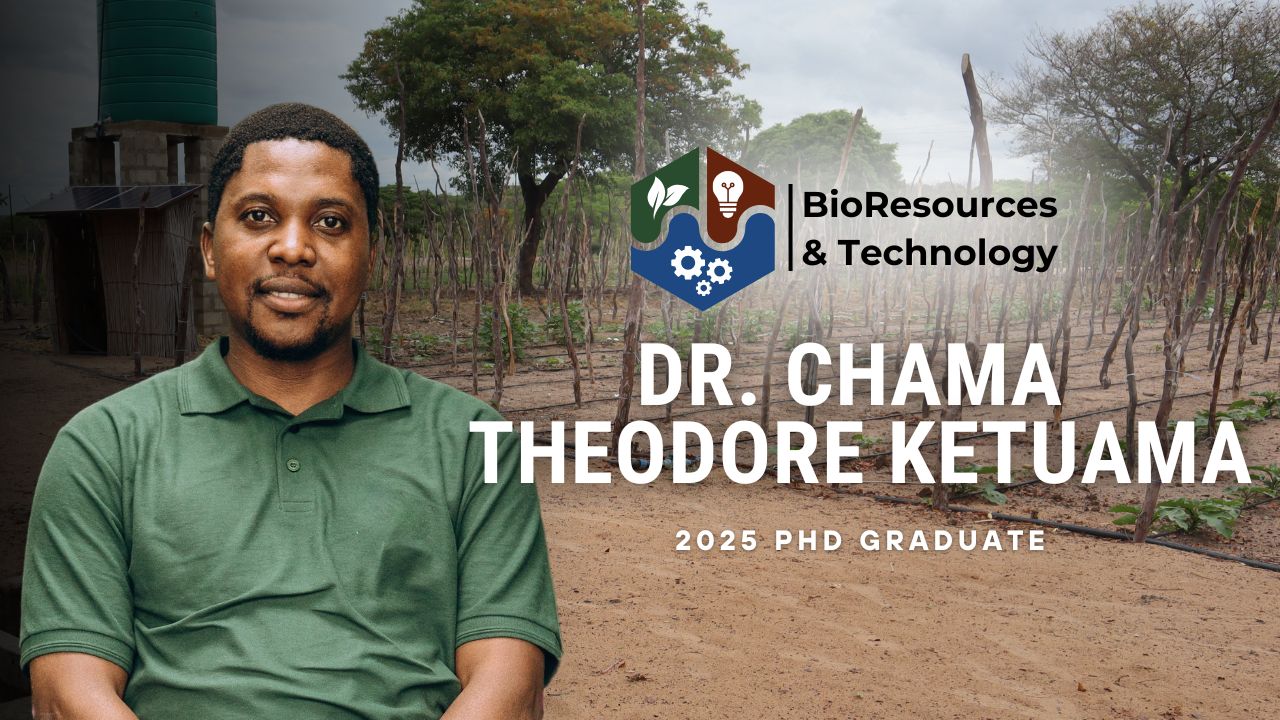Dr. Chama Theodore Ketuama earned his Ph.D. in Sustainable Rural Development under the supervision of Assoc. Prof. Dr. Hynek Roubik (Czech University of Life Sciences Prague). His research focused on the economic, socio-technical, and environmental aspects of small-scale biogas technology in Cameroon. His research topic was ‘Understanding the viability and sustainable transition pathways of small-scale biogas technology in Cameroon’.
Dr. Chama has coauthored 13 scientific publications, participated actively at international conferences, and participated in 1 internship during the 5 years of his doctoral studies. He has been a member of the BRT at the Czech University of Life Sciences Prague since the 1st year of his studies.
To get more insights into Dr. Ketuama's academic journey, our BRT Communications team conducted an interview to capture his thoughts and share his story.
ENJOY THE INTERVIEW!
Question 1: How does it feel to have successfully defended your doctoral dissertation?
Dr. Chama: Defending my doctoral dissertation gave me a feeling of joy and great relief. Reaching this significant milestone felt particularly rewarding after all the time and effort I invested.
Question 2: Can you share pivotal moments from your academic journey that you believe were crucial in successfully defending your doctoral dissertation?
Dr. Chama: Three pivotal moments significantly shaped my research journey. First, collecting data in rural Cameroon and seeing the challenges faced by households adopting biogas technology deeply solidified my passion for the topic. Second, the critical feedback I received while presenting preliminary findings at conferences helped me to rethink and refine my research approach. Finally, publishing my first peer-reviewed article significantly boosted my confidence.
Question 3: Reflecting on the process, what were the significant challenges you encountered while writing your dissertation and defence phases, and how did you navigate through them?
Dr. Chama: The main challenge was finding the small-scale biogas plants in Cameroon. They were scattered across the country, and there was very limited information available about their locations. At the time of data collection, no database of biogas plants existed. As a result, gathering the data was both expensive and time-consuming, taking around eight months to complete. I succeeded in collecting the data through persistence. This delayed the writing of some manuscripts. The challenge related to the final defence was anxiety. I navigated through it by practising with my peers and taking their advice.
Question 4: Balancing academic commitments, personal life, and other responsibilities can be demanding. How have you managed to strike that balance while working on your dissertation?
Dr. Chama: Balancing academic commitments with personal life and project involvement was challenging during my dissertation. I created a structured schedule that prioritised key tasks while postponing less important ones. Striking this balance was invaluable in staying healthy, focused and maintaining productivity.
Question 5: What valuable advice would you offer for fellow doctoral candidates preparing for their dissertation defence?
Dr. Chama: Master your presentation. Anticipate tough questions, prepare answers and be grounded in your research and related knowledge.
Dr. Chama: For current BRT students, use the early years of our doctoral studies diligently. Collect your data as early as possible and write the manuscripts. If necessary, seek help from your peers in areas you deem lacking. Also, take training to build your research capabilities. Join networks of researchers and collaborate with some of them. Explore tools that can enhance your writing.
For prospective BRT students, I strongly encourage you to explore and engage with the abundant learning opportunities within the BRT.
Question 7: Now that you have reached this momentous achievement - What are your plans for the future?
Dr. Chama: I plan to continue my work in policy, researching and designing programs that empower people, especially in rural areas, with accessible renewable energy and other sustainable agricultural technologies. This directly aligns with my goals of improving livelihoods, ensuring environmental sustainability, and strengthening food security in Cameroon and other countries facing similar challenges.
For more details on BRT activities, subscribe to our newsletter or follow us on social media for regular updates and highlights.


